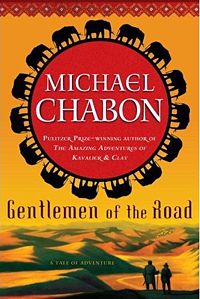"Modern society is like a great network of complex latitudes and attitudes – and despite their differences, all cultures, environments and conditions have something valuable to contribute to the whole. They keep changing all the time and interact with each other, so that each experience that we come across can become the source and exciting medium for our creation. In this sense, a composition reflects a composer’s cultural and psychological makeup." – Chen Yi in interview with John de Clef Piñeiro
Chen Yi was born into a musical family. Her mother and sister played piano and her father played violin. During dinner, the family would listen to classical recordings, and they attended weekly symphonic concerts, ballets from
When the Cultural Revolution overtook
Although she does quote from Chinese musical materials, she is more interested in reflecting an entire culture, not just a part of it. For this reason, when she approaches a vocal work, she delves into the depths of Chinese literature, finding words that can help her translate Chinese culture into musical form.
In order to understand the method of Chen Yi’s, shall we call it neo-exoticism, I want to briefly look at her a cappella work for chorus that will be performed here at the festival, Spring Dreams. The text was written by the T’ang poet Meng Hao-ran, and although Chen is writing for the traditionally Western ensemble of SATB chorus, she keeps the text in its original language, providing a pronunciation guide for the singers. This simple choice has profound consequences on the work’s overall form. The piece is built upon layers of ostinati, as is typical of much of her work. The altos and tenors enter with short nonsense syllables of strong consonants and vowels that are performed as breathy unpitched speech. By the time the basses enter whistling in imitation of bird calls a minute into the work, the audience feels surrounded by birds and insects calling to each other on an early spring morning. The text finally enters last in the sopranos, floating above the cacophony with a melody that in its contour and sound mimics, but does not quote, the sound of Jingju, Beijing Opera. Sonically marking the texted line by putting it in the upper voices and setting it to a recognizable melody allows Western audiences to distinguish that line as carrying the text; otherwise the nonsense syllables could be construed as bits of the Chinese language. Futhermore, by using a Jingju-like melody, Chen highlights the practice in that tradition of crafting new words to match pre-existing melodies in contour and linguistic tone, a connection that would have been lost had the poem been translated.
The total affect of the work’s first half is achieved through heterophony, a dominant organizational principle of Chinese music, especially the music of the regional operatic styles. In the work’s second half, the music becomes much more Western and chordal, as though upon awakening, the poem’s speaker realizes that he has been in a Chinese dream and is back in the Western tradition. The voices begin moving in homophony, building clear chords while the nonsense syllables are relegated to one tenor voice. However, traces of
Throughout this work and others, Chen Yi operates like a conceptually exotic composer firmly writing in a Western style influenced by an East Asian one, but the outcome is quite different because of Chen’s unique background as an Asian composer trained in China and the West who now presents back to the West its own music fundamentally altered.
How, then, are we to hear this new type of exoticism? I believe we need a new formulation or at least a new addition to our discussions of exoticism. In challenging Edward Said’s original construction of Orientalism, Michael Richardson writes: “The problem here is that if reciprocity between subject and object is impossible, then, by the same token, the object cannot challenge the subject by developing alternative models.” This notion of reciprocity is key in understanding the currents of exoticism that are evident in our examples. Although questions of power invariably must come into the discussion, we cannot forget that once Western musical culture has been imposed, it can be taken and twisted back upon itself to create new spaces for dialogue. Think, for example, of a composer like Chen Yi. She has lived in the




No comments:
Post a Comment